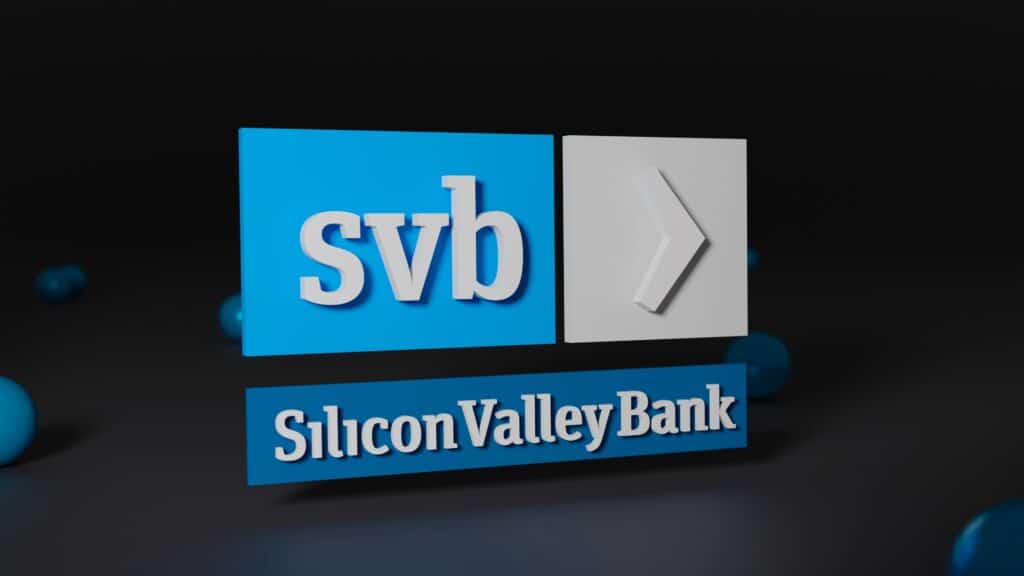Risk, Reward, Control and Morals: Responsibility in Industry and Finance
Risk is a necessary evil for anyone who wishes to gain a better-than-average return on their effort. When do risky behaviors become too risky? And, what moral hazards lie in risk-taking behaviors in pursuit of massive rewards? Part of general responsibility in industry and specifically in finance is the ability to recognize when risky behaviors go too far. In this article, I analyze two cases of risk-taking behaviors that led to massive consequences in recent months: the downfall of cryptocurrency giant FTX, and the failure of Silicon Valley Bank.
The Moral Downfall of FTX
FTX is a company which built a flagship online platform that allows investors to purchase and hold cryptocurrency assets. In recent years, the company grew extremely rapidly to a total valuation of around $32 billion before its highly publicized and shockingly rapid decline which ultimately led to losses for its stakeholders, even including individual investors. The company and its founder, Sam Bankman-Fried, had an interesting relationship with society and, ironically, outwardly professed their devotion to altruism. However, in retrospect, it is clear that FTX suffered from a failure of proper corporate governance and leadership, which culminated in immoral, and even illegal, practices.
Sam Bankman-Fried was an acclaimed cryptocurrency mogul touted as a genius by the masses. On many occasions, Bankman-Fried professed his devotion to using the wealth he amassed through his business ventures to improve the world. An article by the New York Times points out, post-mortem, that the founder who presented himself as desiring to help those in extreme and immediate short-term need, such as by purchasing bed nets to stop people from dying from malaria. However, in reality Bankman-Fried’s altruistic interests were really more focused on less practical things like existential threats to humanity, such as the development of artificial superintelligence. This information illuminates the mindset of Bankman-Fried: a person of intellect who is enamored with exerting an impact on a brilliant future, yet lacking a focus on the near-term and day-to-day operations. Bankman-Fried’s claims that “ultimately [having a positive impact on the world] is what I care about most” may have made him a trusted darling of the tech world for some time; but now, with the massive harm he and FTX have caused, this messaging serves as a painful reminder that corporate-social responsibility is less about what one says, and more about the actions they take.

The founder’s focus on the future to the detriment of today pervaded the company’s governance structure and operations, having a negative impact that contributed to their downfall. This ultimately fatal culture started at the top, with the leaders that Bankman-Fried elected to govern the organization. For one, many of the leaders lived together in the company’s headquarters in the Bahamas, where they reportedly mingled in ways that were unprofessional.
One such instance involved Bankman-Fried appointing Caroline Ellison, a woman whom he had been romantically involved with, as the CEO of Alameda Research, an affiliated investment firm that was essentially an extension of FTX with unlimited access to its capital for use in making trades. Notably, there was a culture of stimulant (a class of dopamine-boosting drugs including Adderall) usage amongst the executives, with Ellison on the record as tweeting her belief that there is “Nothing like regular amphetamine use to make you appreciate how dumb a lot of normal, non-medicated human experience is.” Another major failure of governance at FTX was the improper treatment of their accounting systems – the $32B company still used QuickBooks. This lack of proper governance was probably exacerbated by the fact that the company had no board of directors, and therefore the executives were free to act as they pleased, with only Bankman-Fried, and his ideals, to answer to.
The company went bankrupt after Ellison used capital acquired from FTX, which actually belonged to the individual and institutional investors that were using the exchange, to make a high-risk investment that did not pay off. When investors on the exchange began to hear news that led them to believe their deposits were in danger, many began to withdraw their funds and, in the end, FTX did not have enough liquid assets to continue reimbursing customers. FTX essentially failed due to a modern-day bank run. This corporate horror story is rivaled only in comparison to the likes of the Enron scandal, and a court ordered the same gentleman who handled the Enron situation, John Ray, to oversee the bankruptcy and restructuring of FTX as the new CEO. Criminal prosecution on charges of fraud of Ellison (plead guilty), the company’s CTO (plead guilty), and Sam Bankman-Fried (plead not guilty) are ongoing at the time of writing.
Excessive Risks of Silicon Valley Bank
The enormous financial fallouts of the past twelve months do not stop there. Another extremely high-profile financial failure of recent times is that of Silicon Valley Bank (SVB). Bearing the name of America’s San Francisco Bay area innovation hotbed, SVB describes itself on its website as “fully committed to the innovation economy,” serving many financial functions needed for new businesses such as venture capitalist funds and startup banking services.
The bank recently faced a crisis when its customers, mostly technology startups, began to withdraw cash from the bank due to economic factors, which forced the bank to take less-than-ideal financial actions (such as the sale of assets at a $1.8B loss) to cover the withdrawals. In turn, this caused general distrust in the bank and stoked more withdrawals which further worsened its position. Although SVB’s actions were legal, unlike at least some of the actions of FTX, how moral were they? In this article, we will focus on the bank’s poor risk management practices which, if improved, could have saved the bank and the economy from huge negative financial consequences.
Like the technology startup clientele it served, SVB took large risks in pursuit of large rewards. One influence on SVB’s risk taking ability was the 2018 bank deregulation law which relaxed strict government oversight of banks holding between $100B and $250B in assets (SVB held $212B in assets as of Q4 of 2022), allowing these banks to leverage more of their assets (i.e. customer deposits) as investments in pursuit of their own profits and keep less of that liquid capital on hand.

The bank’s risk-taking behavior is illustrated by its months of operations without a person on staff whose job it was to manage risks – an absolutely essential activity in a financial institution. A 2018 global survey by Deloitte of more than 95 leading financial institutions, “Ninety-five percent of respondents … reported that their institution has a chief risk officer position or equivalent." Accordingly, when US government regulators pointed out to SVB’s management that its investment strategies were over-optimistic and put the bank at a risk of destabilizing, no changes were made. In hindsight, US Federal Reserve vice chairman for supervision Michael Barr criticized SVB for their lack of a risk manager as well as their over-optimism, which he said “was not at all aligned with reality." Were the people in the driver’s seat of this risk-taking feeling the unique stress that comes with making a sizable “gamble”? Given that SVB CEO Greg Becker earned nearly $10MM in compensation in 2022, the chances are low.
SVB collapsed when it ran out of funds to pay back the depositors making withdrawals from the bank, creating major negative effects downstream. At this point, deposits up to $250,000 were covered by the federal deposit insurance corporation (FDIC), a US government corporation established for the purpose of protecting depositors’ funds. However, many of SVB’s depositors had significantly larger deposits in the bank, which were not covered and would have been eradicated had the US government not stepped in to rescue depositors but not SVB’s shareholders, which will likely receive a fraction of their investments as repayment if they receive any reimbursement at all. (The bank is now owned and operated by the FDIC.) The government’s action to cover the bank’s depositors could very well have negative consequences on the risk-taking behaviors of banks in the future – it begs bank managers to ask “what’s the worst that could happen?” in the face of outsized risks in pursuit of massive profits.
Finance Exemplifies of the Importance of Responsibility in Industry
The balance between risk and reward is a fickle one. Some degree of risk is necessary if one is to achieve better-than-average outcomes, but taking outsized risks puts one in jeopardy of unforeseen failure which generates negative consequences for ourselves, our affiliates, and society. Furthermore, risk taking can be addictive, such as in the case of a gambler (who creates risk for the purpose of assuming said risk). In hindsight, it is clear that it is dangerous to get too close to our risk-taking without an unbiased third party to help us gain perspective, such as how the executives of FTX had no board of directors to oversee their activities or how SVB’s managers ignored the warnings of the federal government as well as operated without a dedicated risk manager contrary to the industry standard. At least in the financial sector it seems likely that, moving forward, this oversight will be forced upon corporations by the federal government’s mission to maximize prosperity and minimize suffering in the US.
But the recent failures of finance also highlight broader concerns where industries are taking risks, like with rapid AI development and environmental recklessness. A manageable level of risk can lead to great outcomes and innovations, but there is a tipping point where the consequences to actions become unmanageable. That's why it's important to have risk management strategists and ethics teams involved in business processes, across industries. With the connected nature of today's social and technological systems, companies owe it to everyone to make responsible choices.
Stay connected. Join the Infused Innovations email list!
Share this
You May Also Like
These Related Posts

Identify Sensitive Data and Risks in Your Organization with a Compliance Accelerator

Integrate External Attack Surface Management (EASM) with Microsoft Sentinel

No Comments Yet
Let us know what you think